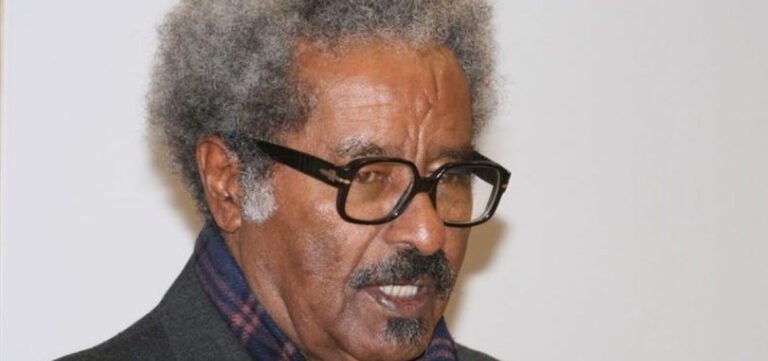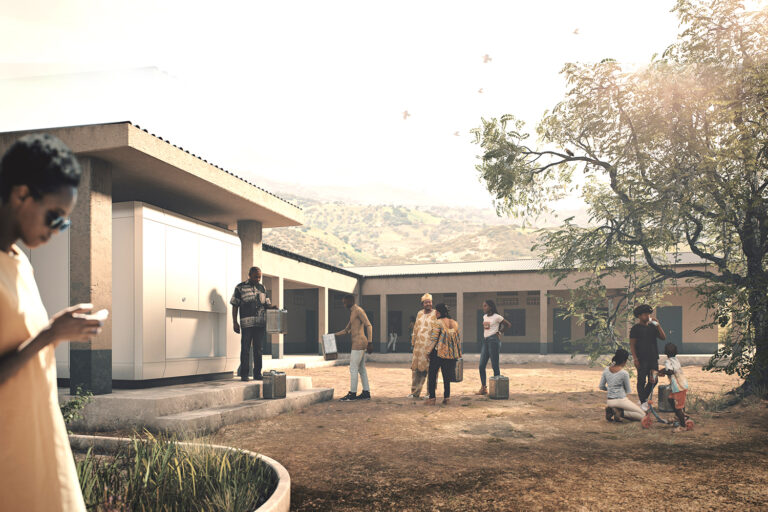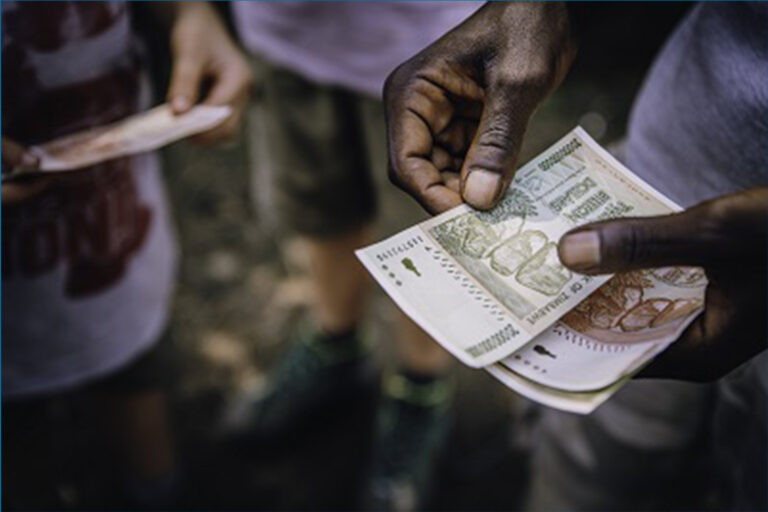Obituary
Professor Mesfin Wolde Mariam
1929-2020
It is with a great sense of sorrow and loss that I learnt about the passing way of my teacher and adviser, Professor Mesfin Wolde Mariam. Ethiopia’s distinguished professor was an accomplished scholar, a patriot, a human rights advocate, a social democrat and humanist philosopher with clear thoughts and convictions. As a teacher, he expedited his teaching, research and social service duties with honor, dedication, selfless dedication and unparalleled excellence. As an unwavering social democrat, he fought for democracy, freedom, equality, justice, human rights and national unity. He vehemently and resolutely stood against the fractionalizing and destructive policies of extremists of the left and right. He taught the principle of unity in diversity and stood for the marginalized, the oppressed and the poor. As a patriot, he taught us the tremendous sacrifices that our fathers, mothers, brothers and sisters paid in maintaining the independence and proud history of our illustrious country. His deep humanistic philosophical thoughts and writings will undoubtedly serve the younger generation of the value of courage, knowledge, humility and love of country and people as the building blocks of our country. His ascetic and almost monastic lifestyle has taught us the virtues of simplicity, self control and concern for others. As a social critic, he fought the good fight without fear and assertive confidence. Ethiopians at home and the Diaspora and the international community lost a great intellectual, a patriot and a citizen of unmatched caliber and unwavering dedication to people and country. Rest in Peace.
Tadesse Kidane-Mariam
Professor Mesfin Wolde Mariam
Telenor Connexion and Ericsson enable sustainable micro-factories with IoT Accelerator
- Powered by Ericsson IoT Accelerator, Telenor Connexion provides global connectivity to Wayout’s sustainable micro-factories
- Telenor Connexion to delivers cellular IoT connectivity management services, SIM cards and agreements with local operators
- Ericsson IoT Accelerator enables cost-efficient IoT connectivity management and operations using the secure, scalable and standardized worldwide mobile network infrastructure
Powered by Ericsson (NASDAQ: ERIC) IoT Accelerator, Telenor Connexion will provide global connectivity to Wayout’s sustainable micro-factories starting in East Africa and expanding into the Middle East, Asia Pacific and other markets in 2021. Wayout has engineered plug-and-play micro-factories for local production of clean, filtered water, with a minimal eco footprint. Powered by solar panels, the micro-factories offer an advanced water purification system.
According to the United Nations, 3 in 10 people lack access to safely managed drinking water services.
Wayout’s local solution eliminates the unnecessary logistics of bottling and transporting pre-packaged glass or plastic bottles. Each module is fully automated and can filter 70,000 liters of water, remove up to eight tons of CO₂ and up to 200,000 plastic bottles every month. The micro-factories are managed by a smartphone application to manage operations, monitor performance, and launch autocleaning.
Wayout’s local operations depend on reliable global connectivity. Powered by Ericsson IoT Accelerator, Telenor Connexion delivers the cellular IoT connectivity management services, SIM cards and all necessary agreements with local operators to provide truly global service. Ericsson IoT Accelerator is a global IoT platform, enabling cost-efficient IoT connectivity management and operations for any enterprise of any scale, using the secure, scalable and standardized worldwide mobile network infrastructure.
Ulf Stenerhag, CEO Wayout says: “Perfect drinking water should be a human right. Our idea is to make access easy and reliable. By leveraging spearpoint technology and robust engineering, our connected sustainable micro-factories enable infrastructure solutions and business opportunities for providing perfect drinking water locally, whilst reducing the environmental impact globally. We want to let it flow.”
Mats Lundquist, CEO, Telenor Connexion says, “Telenor Connexion is proud to provide global connectivity to Wayout. They are an innovative company that values and prioritize sustainability and is making an impact.”
Kiva Allgood, Head of IoT, Ericsson, says, “Our technology can help solve global challenges and accelerate sustainability. Together with Telenor Connexion and Wayout, we are using our global IoT platform to deliver business and societal value and contribute to the UN’s Sustainable Development Goals.”
BAL Inaugural Season Postponed
The launch of the Basketball Africa League, the new partnership between the International Basketball Federation (FIBA) and the NBA, has been put on hold after delays to its plans to put together a season caused by the COVID-19 pandemic.
Originally, prior to the outbreak of the global pandemic, March 13, 2020 had been set to be the opening night, with games slated for Dakar, Senegal. Those plans were unavoidably altered.
“Following the recommendation of the Senegalese government regarding the escalating health concerns related to the coronavirus, the BAL’s inaugural season will be postponed,” BAL President Amadou Gallo Fall said in a statement. “I am disappointed we are not able to tip off this historic league as scheduled but look forward to the highly-anticipated launch of the BAL at a later date.”
An NBA First

The league, which will have 12 teams spread across the African continent, marks the first time the NBA will operate a league outside North America.
“The Basketball Africa League is an important next step in our continued development of the game of basketball in Africa,” NBA Commissioner Adam Silver told Bleacher Report. “Combined with our other programs on the continent, we are committed to using basketball as an economic engine to create new opportunities in sports, media and technology across Africa.”
Ogoh Odaudu, head coach of the Port Harcourt Rivers Hoopers Basketball Club in Nigeria, thinks that the additional time could work to the league’s advantage and should also benefit each individual team’s preparations.
“For us as a team, it is a blessing in disguise because now we will get more time to actually prepare more and let our foreign players blend more with the team,” Odaudu said during an appearance on VOA’s Sonny Side of Sports.
The initial BAL season will see games played in Egypt (Cairo), Senegal (Dakar), Lagos Nigeria (Lagos), Angola (Luanda), Morocco (Rabat) and Tunisia (Monastir), with Rwanda (Kigali) playing host to the inaugural BAL Finals.
The following teams have qualified for the inaugural season of the BAL:
- Algeria – GS Pétroliers
- Angola – Petro de Luanda
- Cameroon – FAP
- Egypt- Zamalek
- Madagascar – GNBC
- Mali – AS Police
- Morocco – AS Salé
- Moçambique – Ferroviário de Maputo
- Nigeria – Port Harcourt Rivers Hoopers BC
- Rwanda – Patriots
- Senegal – As Douanes
- Tunisia – US Monastir
Each BAL club’s roster will include 16 players. Of those, 12 will be active for games. Each team must include at least eight players who will be citizens in their respective teams’ home country. A maximum of four players can be from other countries but no more than two players per team can be from outside of Africa.
You can bet on the African League in the same way you bet on the NBA online. But it isn’t just the NBA that is betting on the success of the BAL as they look to continue to grow the game of basketball in emerging markets. NIKE and Jordan Brand are the exclusive on-court outfitter of the new professional league. Fans can follow the BAL @theBAL on Twitter, Instagram and Facebook and register their interest in receiving more information at www.theBAL.com.
Africa A Basketball Hotbed
This season, there were 22 players from Africa active on NBA rosters. The roster of the 2018-19 NBA champion Toronto Raptors included two key players from Africa – Pascal Siakam of Cameroon and Serge Ibaka of Congo. Raptors GM Masai Ujiri hails from Nigeria.
During the 2019-20 campaign, Siakam posted career highs in points (22.9), total rebounds (7.3), assists (3.5), steals (1.0) blocks (0.9) and minutes played (35.2) per game. He also hit a career-high 79.2 percent of his free throws.
Ibaka scored a career-best 15.4 ppg this season.
“For so long we knew the continent of Africa was a continent full of treasure,” retired Congolese NBA star Dikembe Mutombo said in a video posted on the BAL’s Twitter feed. “It was a question of time for those who want to go and find it.”
There are still four players from Africa who are in with a chance to earn the Larry O’Brien Trophy as NBA champions.
In the Eastern Conference final the Miami Heat include shooting guard Chris Silva from Gabon and point guard Gabe Vincent from Nigeria. Towering 7-foot-7 center Tacko Fall of Senegal features for the Boston Celtics, Miami’s opponent.
The Denver Nuggets suit up 7-foot-2 rookie center Bol Bol of Sudan in the Western Conference final. He is the son of former NBA player and African basketball legend Manute Bol.
Africa could gain $89 billion annually by curbing illicit financial flows
Every year, an estimated $88.6 billion, equivalent to 3.7% of Africa’s GDP, leaves the continent as illicit capital flight, according to UNCTAD’s Economic Development in Africa Report 2020.
Illicit financial flows (IFFs) are movements of money and assets across borders which are illegal in source, transfer or use, according to the report entitled “Tackling illicit financial flows for sustainable development in Africa.”
It shows that these outflows are nearly as much as the combined total annual inflows of official development assistance, valued at $48 billion, and yearly foreign direct investment, pegged at $54 billion, received by African countries – the average for 2013 to 2015.
“Illicit financial flows rob Africa and its people of their prospects, undermining transparency and accountability and eroding trust in African institutions,” said UNCTAD Secretary-General Mukhisa Kituyi.
These outflows include illicit capital flight, tax and commercial practices like mis-invoicing of trade shipments and criminal activities such as illegal markets, corruption or theft.
From 2000 to 2015, the total illicit capital flight from Africa amounted to $836 billion. Compared to Africa’s total external debt stock of $770 billion in 2018, this makes Africa a “net creditor to the world”, the report says.
IFFs related to the export of extractive commodities ($40 billion in 2015) are the largest component of illicit capital flight from Africa. Although estimates of IFFs are large, they likely understate the problem and its impact.
IFFs undermine Africa’s potential to achieve the SDGs
IFFs represent a major drain on capital and revenues in Africa, undermining productive capacity and Africa’s prospects for achieving the Sustainable Development Goals (SDGs).
For example, the report finds that, in African countries with high IFFs, governments spend 25% less than countries with low IFFs on health and 58% less on education. Since women and girls often have less access to health and education, they suffer most from the negative fiscal effects of IFFs.
Africa will not be able to bridge the large financing gap to achieve the SDGs, estimated at $200 billion per year, with existing government revenues and development assistance.
The report finds that tackling capital flight and IFFs represents a large potential source of capital to finance much-needed investments in, for example, infrastructure, education, health, and productive capacity.
For example, in Sierra Leone, which has one of the highest under-five mortality rates on the continent (105 per 1,000 live births in 2018), curbing capital flight and investing a constant share of revenues in public health could save an additional 2,322 of the 258,000 children born in the country annually.
In Africa, IFFs originate mainly from extractive industries and are therefore associated with poor environmental outcomes.
The report shows that curbing illicit capital flight could generate enough capital by 2030 to finance almost 50% of the $2.4 trillion needed by sub-Saharan African countries for climate change adaptation and mitigation.






